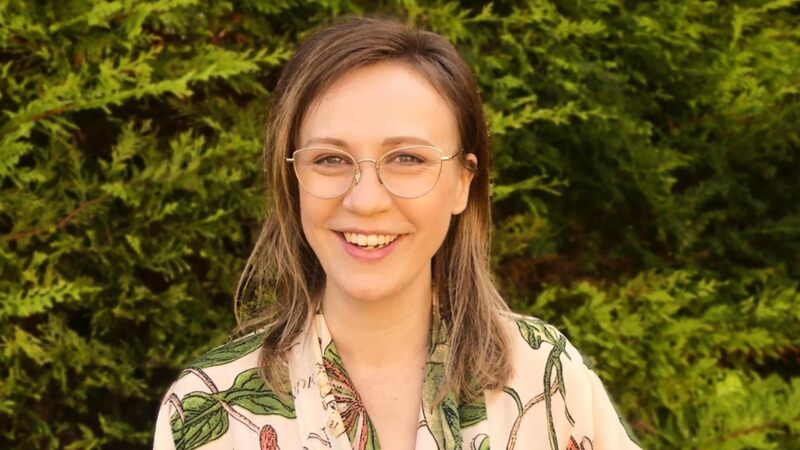You are viewing your 1 free article this month. Login to read more articles.
National Poetry Centre warns of 'tragedy' if Government proposal to pull £5m of funding goes ahead
The National Poetry Centre has warned of "tragedy" if the government’s proposal to withdraw £5m of its Levelling Up funding, as outlined in the Budget, goes ahead.
The government proposed last Wednesday (30th October) to withdraw the £5m in capital development funds awarded to the National Poetry Centre (NPC) in the spring 2024 budget. Many other cultural projects are also at risk of losing funding.
“To ensure investment is focused on the growth mission, the government is minded to cancel unfunded Levelling Up culture and capital projects, and the West Midlands culture and inward investment funding, that were announced at spring Budget 2024, but will consult with potential funding recipients before making a final decision,” the government’s autumn Budget 2024 policy paper states.
The National Poetry Centre (NPC) has now issued a statement and said “it wants to work with the government to explore positive solutions” in a consultation process.
Organisers said that the £20m centre will “breathe new life into an iconic Leeds landmark: Trinity St David’s, a disused church and former nightclub, sited in the heart of a major regeneration area in one of the city’s poorest postcodes”. The building is a significant part of the vision for the city and the wider region, created by Leeds City Council and West Yorkshire Combine Authority mayor Tracy Brabin.
The organisers added: “Since the £5m funding was pledged, immense effort and resource has gone into progressing plans for the country’s first dedicated national centre for poetry. The centre expects to attract more than 100,000 visitors a year, creating work for hundreds of freelancers as well as permanent posts. If the £5m funding is withdrawn, a further £15m of investment is placed in jeopardy, with millions from major research organisations potentially also lost.”
The centre’s recently appointed director Nick Barley, who was formerly director of the Edinburgh International Book Festival, has urged the government to reconsider.
"This is a project of national significance,” Barley said. “The whole culture sector recognises the need for a dedicated centre for poetry and the support and enthusiasm we’ve received from all quarters is unbelievable.
“There is ample evidence demonstrating the value of poetry in supporting literacy, communication skills and mental health and wellbeing and the nation’s army of poets are counting on us to make this wonderful centre happen.”
NPC chair Ruth Pitt said: “We are trying to do something completely unique here. Poetry is loved by people of all ages and cultures. Its heritage goes back hundreds of years. It gives us hope, joy and a means of expressing ourselves which is sharper and more inclusive than almost any other art form. We are nurturing a very special hub to give every form of poetic activity a voice on the national stage. It would be a tragedy to throw all that away now.”
The Poet Laureate and NPC founder Simon Armitage said: “Poetry is the pinnacle of language. For centuries British poets have been revered historically across the globe... We excel in the world of language and literature, and yet we have never had a national cultural headquarters dedicated to poetry. We have to change that—and give our nation of poets the home and the platform they deserve.”
The NPC is supported by the University of Leeds, Leeds City Council and the Mayor of West Yorkshire Tracy Brabin, all of whom recently signed a letter to Chancellor Rachel Reeves, calling for the £5m to be retained. Arts Council England is also a key supporter.
The NPC team is already working with a range of partner organisations including the National Literacy Trust, the South West Yorkshire Partnership NHS Foundation Trust and the Poetry School. Engagement activities have already begun and local poetry-making and reading projects held in October attracted thousands of participants.
A West Yorkshire Young Laureates programme recently recruited two Young Laureates and now plans are underway to roll out the project across the UK, involving over 100,000 more young people.
On completion, the National Poetry Centre will include a 250 seat performance theatre, a commercial café and bookshop, study areas, meeting and rehearsal rooms, rentable offices, an open mic facility, a library, a radio studio and much more.
Funds totalling more than half a million pounds have already been committed and further major funding bids are also underway which depend on the £5m remaining in place.
The first Budget by a Labour government in 14 years, delivered by Chancellor Rachel Reeves, also contained changes to minimum wages, a reduction in business rates relief and increased National Insurance for business owners set to affect bookshops which some booksellers and trade bodies expressed concern over.
The Bookseller has contacted the Department for Culture, Media and Sport for comment.



















